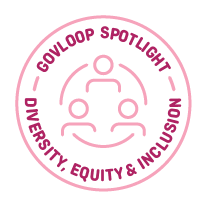 Why leaders don’t ask questions
Why leaders don’t ask questions
When I stepped into my first leadership role and began leading a team, I didn’t know what I was doing. Like most new leaders, I didn’t realize all that went into leading others. Most importantly, I didn’t know that asking questions could open doors to greater connections with my team members.
Most introverted leaders like me dread speaking up in meetings or being in the spotlight. I thought that if I asked a question people would quickly find out that I didn’t have all the answers. I assumed most things were common sense and that by asking questions others would think I was intrusive, rude or lacked confidence. I know now that these beliefs are furthest from the truth.
“Good questions inform; great questions transform.”
– John Maxwell
Why leaders should ask questions
The magic in crafting a good question is that the possibilities are endless. Questions have the power to metaphorically “break the ice” sparking meaningful conversation amongst groups of total strangers. Good questions also bring diverse teams closer together. This can lead to greater levels of trust and communication. We know from research that cohesive teams demonstrate higher productivity. But how do we get there?
In “Good Leaders Ask Great Questions: Your Foundation for Successful Leadership” John Maxwell, one of America’s top leadership gurus, identifies six distinct reasons why questions are valuable:
- You only get answers to the questions you ask
- Questions unlock and open doors that otherwise remain closed
- Questions are the most effective means of connecting with people
- Questions cultivate humility
- Questions help to engage others in conversation
- Questions allow us to build better ideas
Knowing when to ask questions
Bringing teams closer together and building trust amongst diverse individuals are essential skills of good leadership. But, knowing when to ask good questions is another leadership strategy that is not often considered. These are ten examples of situations when asking questions can be beneficial:
- To break the ice in meetings
- To clarify
- To demonstrate leadership skills
- During meetings about performance expectations or goal planning
- When asked your opinion or feedback
- To understand another person’s point of view.
- While coaching an employee
- To introduce a new team member
- To resolve a conflict
- To weigh the pros and cons of a decision
- When there is a breakdown in communication
- During moments of self-reflection
- To get to know others
- To bring more fun to your workplace
When you strategically use the power of asking questions, you can promote meaningful connection, energize or encourage creativity and foster inclusion and diversity of thought at work.
Asking questions to promote inclusive workplaces
In the article “Diversity & Authenticity,” published in the Harvard Business Review, the authors explored social barriers that some racial groups experienced at work. These groups felt uncomfortable sharing about themselves with co-workers from more dominant racial groups. The authors suggested using structured ice breaker questions and games to foster connections through their commonalities rather than focusing on their differences. They also asserted that “sharing should be encouraged thoughtfully, with support, and with a focus on small and early wins.”
There are many creative ways to use questions to help your team build connections, trust and better communications. To learn more about how to promote inclusive workplaces using the power of asking questions, check out these inclusion ice breakers.
Asking questions as part of your leadership strategy
Because I didn’t ask questions or ask for help, I learned about leadership the hard way. However, through reading books, listening to podcasts and engaging in hours upon hours of leadership trainings, I began to accept reality— good leaders do ask questions.
Now that I better understand and see the tremendous value of asking questions, I ask questions regularly. It has become an essential part of my leadership philosophy and approach to problem solving and getting to know other people.
If you are new to leadership, I highly encourage you to ask great questions early on. Also, make sure to add this approach to your leadership philosophy. Here are two questions to further ponder:
1. What was the greatest question you ever asked someone?
2. What did you learn from asking that question?
Interested in becoming a Featured Contributor? Email topics you’re interested in covering for GovLoop to [email protected]. And to read more from our summer/fall 2021 Cohort, here is a full list of every Featured Contributor during this cohort and a link to their stories.
Kima Tozay is a Licensed Clinical Social Worker and subject matter expert on Counseling and Advocacy programs in her role at Navy Fleet & Family Support Center, Everett, Washington. Her government career spans 15 years, starting in the Navy. Kima completed her Masters in Social Work degree from the University of Washington and has held positions with the Veterans Affairs Department (VA) and the Army. Kima’s greatest career accomplishment is receiving the Federal Employee of the Quarter Award for her leadership during the COVID-19 pandemic. She earned an Executive Leadership Certificate from Graduate School, USA. You can connect with Kima on LinkedIn.






Leave a Reply
You must be logged in to post a comment.